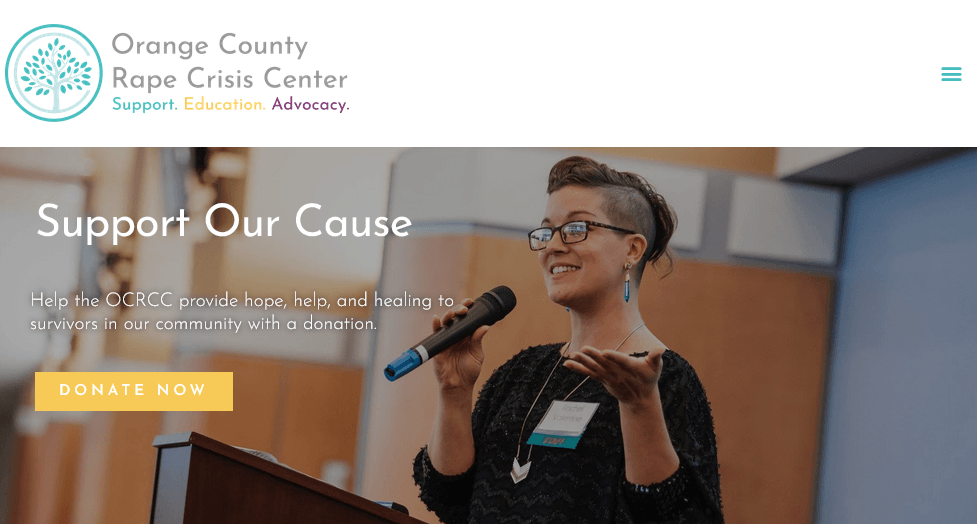We were horrified to see the WRAL story earlier this week that reported big budget cuts are coming to the Orange County Rape Crisis Center. We reached out to OCRCC’s board member, Anna Lynch, to learn more.
Tell us a little bit about the history and services of the Orange County Rape Crisis Center.
OCRCC is one of Chapel Hill’s oldest non-profits at over 50 years old. The center serves all residents of Orange County including students at UNC. The center provides services include:
- a 24-hour hotline
- Support groups
- Advocacy including accompaniment to the hospital for sexual assault kit retrieval and court dates,
- Free trauma focused therapy and referrals for other mental health services
- Direct relief for basic needs and financial crisis
- Community education events
- The SafeTouch and Start Strong programs that reach every child in the Chapel Hill/Carrboro public schools
- Trainings and workshops around the topic of sexual assault prevention for professional and community groups
The Orange County Rape Crisis Center receives the bulk of its funds from the Crime Victims Fund. Can you describe how that funding has changed?
While it’s rather complicated, we can give this a try. The Victims of Crime Act established the Crime Victims Fund which is administered by the Department of Justice. Congress does not allocate any money to the fund; rather, they have directed the Department of Justice to divert funds they recover from white collar criminals to the fund. The money from the fund is then dispersed throughout the country through grants.
Over the past few years, there have been fewer white collar prosecutions which has resulted in less money going toward the fund. As a result, OCRCC and other organizations that serve victims of crime have received less and less money resulting in the need for major layoffs.
What does that mean for services for survivors?
These cuts are deep. We are planning to lay off half of our staff in October. The agency will be able to provide therapy to roughly 40% of the previous caseload and will discontinue its popular Trauma Care Collaborative professional network for therapists.
Advocacy and legal case management services will divert to a waitlist for all but the most urgent matters. Prevention programming in the schools will only be available to some grade levels, a major shift from the “Every child, every grade, every year” approach of the last 35 years.
OCRCC will also be closing its beloved Latino/e/x Outreach and Engagement programming. There will be no changes to the agency’s oldest core services: the 24 -Hour Helpline (available by phone, chat or text) will continue to be available all day, every day.
How can our community help sustain the important work that the rape crisis center is doing?
Obviously, our biggest need is funding. We are asking community members who have the means to do so to become monthly donors.
If you are community member who has a connection to a foundation that would be interested in funding the center, let us know!
Finally, let your local and federal politicians know that you care about funding for crime victims and you want them to make the budget changes necessary to keep the lights on at rape crisis centers and domestic violence shelters across the state.
Where can people learn more?
Please visit https://ocrcc.org to learn more about the center and to make donations.

